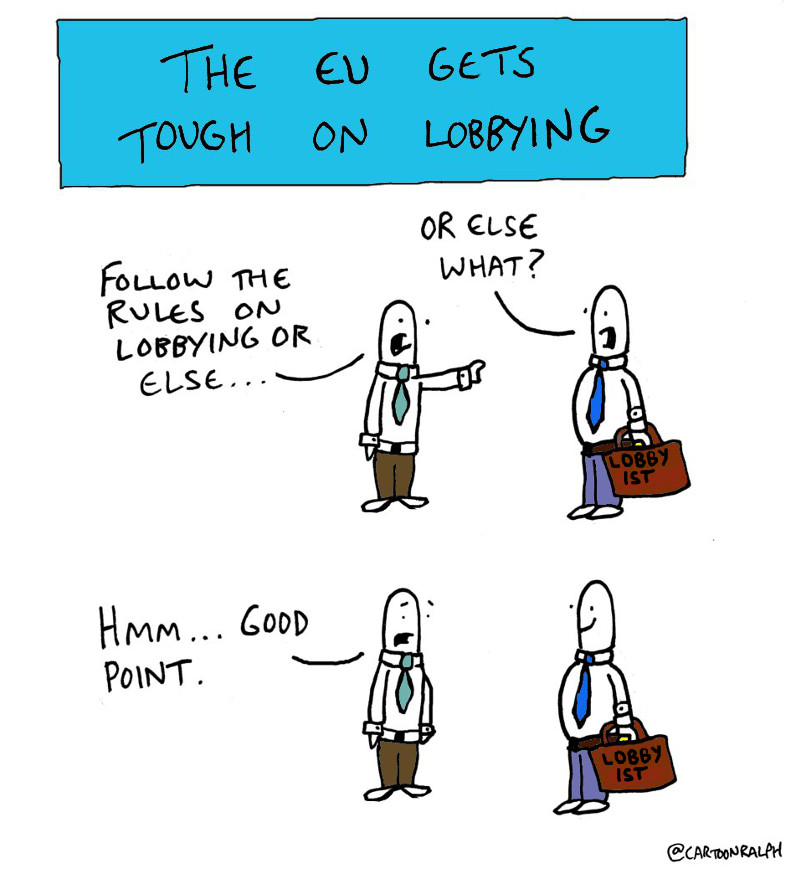
Before the start of the political negotiations on the EU Transparency Register ALTER-EU, Civil Society Europe and TI-EU have written a letter to the three main EU institutions demanding them to deliver an ambitious reform.
The political promise of a mandatory lobby register for the EU can only be fullfiled if additional steps are taken. We urge the political leaders in the Commission, Parliament and Council to forcefully tackle these issues, move beyond the mandates they internally agreed and deliver a strong system of lobby transparency.
In particular, we hope that you deliver an Inter-Institutional Agreement that:
-
Ensures that decision-makers in Commission, Parliament and Council only meet with registered lobbyists
Such provisions would greatly enhance the current voluntary register, by narrowing opportunities for lobbying by unregistered organisations. Such a rule would not affect policy-makers who meet with citizens from their constituencies, local civic associations or SMEs; all of which are vital parts of being an elected representative. None of these groups would need to join the register unless they met a minimum threshold requirement for lobbying activity.
-
Increases the resources for the secretariat and improves register data
The European Register is now the biggest in the world with over 11,000 entries. Yet, the Secretariat remains under-resourced both in terms of staff and budget. All institutions should urgently devote additional resources to the register secretariat so that it is able to work on improving the quality of the data, including by performing a far greater number of checks on declarations. In order to present a reliable picture of lobbying at the EU level data quality should be improved, particularly on third country lobbying, funding sources of organisations and financial reporting intervals.
-
Keeps the current definition of lobbying, including both direct and indirect lobbying
We are concerned that proposals to change the scope of Transparency Register will affect the definition of lobbying. It is essential to explicitly retain the current definition of lobbying, which covers all activities which have the objective of directly or indirectly influencing EU policy-making and decision-making. This will ensure a far greater set of activities are covered by the financial disclosure rules of the register, including the indirect lobbying work performed by many ‘intermediaries’ such as lobby consultancies and lawyers. The European Ombudsman has also called for “indirect lobbying” to be explicity included in the register scope.
-
A commitment to a legally-binding lobby register in the long-term
A new Inter-Institutional Agreement for the EU Transparency Register is a step in the right direction and can improve lobby transparency in Brussels. In order to ensure full compliance and real transparency – backed by legal sanctions – however, a legally-binding lobby register is needed. The institutions should maintain the longstanding demand for such a register and the Inter-Institutional Agreement neogitations should lay the groundwork for such a legal instrument in the future.
The changes that we are calling for are an essential and necessary step towards making EU policy-making more transparent, tackling excessive influence by special interests, and bringing the EU institutions closer to citizens, particularly in the run-up to the 2019 European elections.

